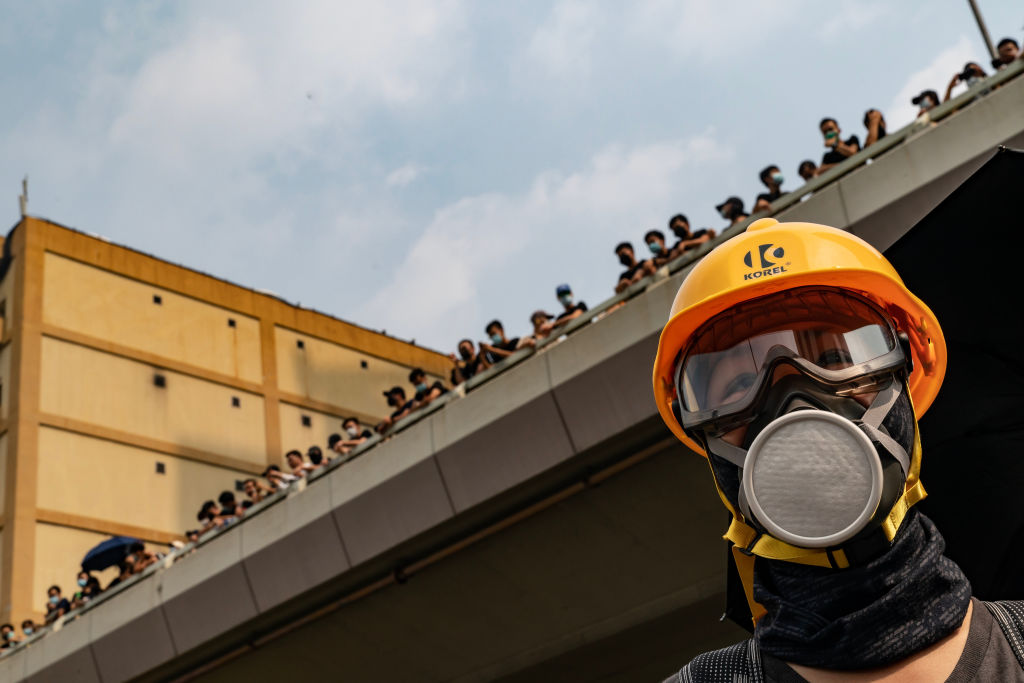
Protests continue to rock Hong Kong. Throughout the summer—and now pressing into autumn—demonstrators have blocked city streets, shut down the airport and fought running battles with police.
Sparked by an anti-civil-liberties bill, the unrest is undergirded by shifts in the economy coupled with stalled political reform. For many citizens, there’s nothing left to lose but a future to win. It’s therefore unsurprising that, despite the government’s concession to withdraw the bill, no end is in sight.
Hong Kong is missing, but sorely needs, a bold program to move forward. This program should not simply aim to patch over the immediate crisis, as do current proposals, but rather seek to remake society, the economy and politics in a way that is inclusive and flush with vibrancy, opportunity and hope.
The foundation of a reform program must consider the structure of the Hong Kong economy.
In the 1980s, Hong Kong began an economic transition from manufacturing-based to finance and services. As companies moved to China in search of cheaper labour and resources, financial, producer and consumer services assumed an increasingly larger share of the economy.
From 1980 to 1997, for example, manufacturing fell to 6.5% of total GDP, while services rose to over 85%. Over the same period, the percentage of the Hong Kong workforce in manufacturing fell from almost half to less than 10%, while the portion employed in services rose to nearly 80%.
Widening inequality is a major consequence of this transition. Despite the replacement of one sector with another, the majority of jobs created have been low skilled and low paid, and often serve a professional elite that takes home a far greater share of earnings. Corporate dominance and shrinking economic opportunity have resulted in the largest wealth gap in nearly five decades.
This economic trend is compounded by politics. Hong Kong’s governing body is only partially elected by popular vote, while the majority of seats are given by appointment or by a vote of corporate bodies.
This ensures that democratically elected representatives have a limited ability to legislate, while non-democratically elected members can shape policy and dictate legislation. Furthermore, the chief executive is appointed by Beijing after being nominated by a select board of business and pro-China groups in a non-binding forum.
In short, the people of Hong Kong have very little say in how their society is run or in the policies that affect their lives and livelihoods.
The direct result has been the diminishment of social services and economic opportunity in favour of a corporate system benefiting a handful of conglomerates. Housing support has been slashed and public housing privatised. Unemployment benefits have been cut, welfare services reduced, and hospitals overburdened.
Meanwhile, no-bid contracts are being handed out to conglomerates, luxury housing gets built on land reserved for technology and industrial parks, and monopolies flourish alongside cartels that suppress competition. Democratic lawmakers have tried to stop these developments but are consistently vetoed.
This economic and political context has led to widespread dissatisfaction and outburst.
In the past few decades, at least four major protests have rocked the territory and shaken government leadership.
In 2003, massive demonstrations overtook the city. In 2010, protestors surrounded the legislature, and in 2014, demonstrators blocked traffic for 77 days. Now, citizens have occupied the streets for over three months and counting.
That being the situation, the task at hand is to put forth a program that not just speaks to the political immediacy with the single demand of a popular vote, but also addresses the underlying structural malaise. A comprehensive set of reforms is needed that works to democratise the economy, redirect social programs and give greater voice to the citizenry.
On the economic front, measures must be taken to open the economy to more people in more ways. This can be done by increasing access to capital and land, while simultaneously establishing incubation centres and development parks with innovative programs that facilitate collaboration and competition.
A precondition for success is the reinvention of the market economy: existing oligarchies, cartels and price-fixers must be dissolved and free and fair competition encouraged. Simultaneously, independent labour and consumer unions must be allowed to operate and organise.
In order to encourage experimentation and exploration, social programs should be restored and strengthened. Services such as public housing, health insurance, retirement and unemployment benefits are essential now more than ever as people find themselves in precarious positions. This will also alleviate the fear of failure in the transition to a new, more inclusive economy.
Politically, people must have a say in decisions that affect their lives and the future of their society. Hong Kong already has the necessary political infrastructure in place; it just needs to chart a path to universal suffrage.
This program would be informed by a vision of opportunity and universal aspiration. It would seek not just to address the immediate problems, but to ensure that each Hong Kong citizen has the ability and equipment to raise themselves up and live a greater life.

